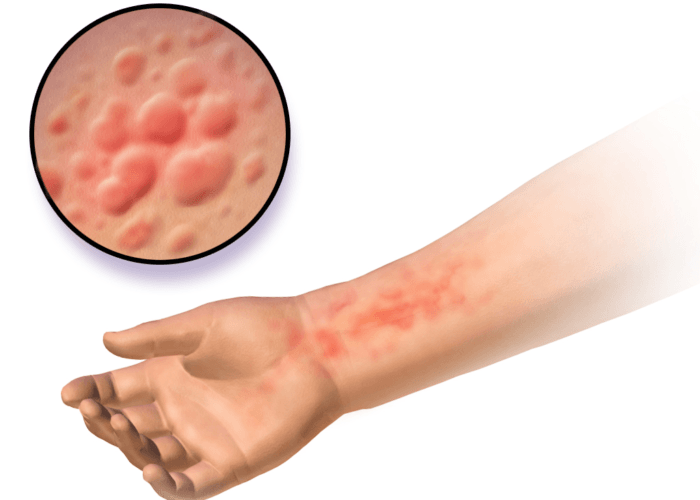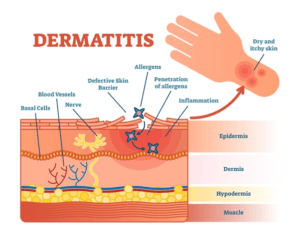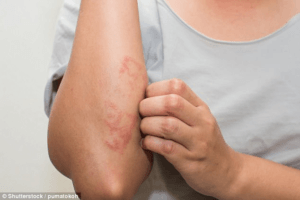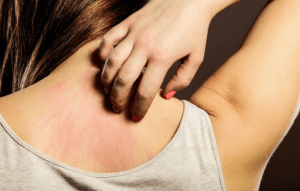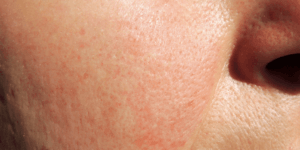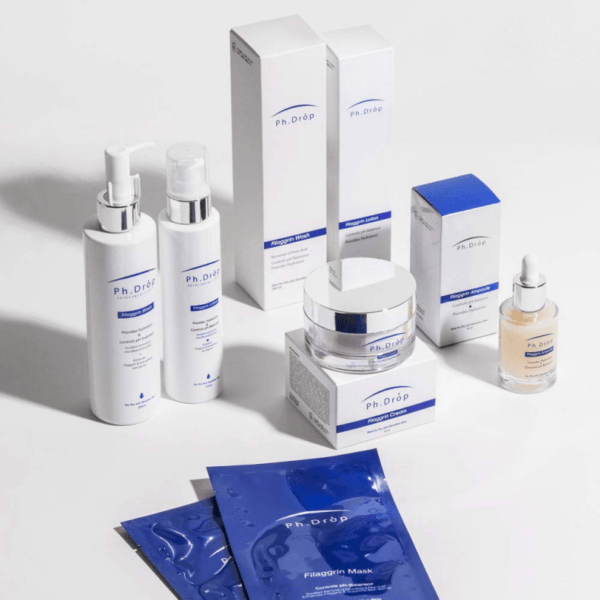Skin Sensitivities
Skin sensitivity is a very common, unpleasant condition where skin can show visible symptoms like dryness, irritation, eczema, pimples, redness, desquamation, or non-visible symptoms like burning, itching, or stinging on face or other body parts.
When these sensations are accompanied by redness, the skin can become couperose-prone, and Rosacea may develop.
Are Your Genes Making You Vulnerable Towards Skin Allergy Or Sensitivity?
Gene variations can help to identify whether you are at great risk of inflammation causing unnecessary trauma to skin cells. Recent scientific studies have shown an association of the FLG gene with the strongest risk factors for eczema and allergic sensitization.
Filaggrin is important in maintaining the structure of the skin’s outermost layer, called the epidermis. Certain variations in the FLG gene lead to a decrease or loss of the filaggrin protein, resulting in dry and fissured skin on the hands and elbows.
OUR SERVICES WILL PROVIDE YOU INFORMATION ABOUT YOUR SKIN SENSITIVITY RISK SCORE.
Mechanism of Skin Sensitivity
Sensitive skin is a condition of subjective cutaneous hyperactivity to environmental factors. Individuals experiencing this condition report exaggerated reactions when their skin is in contact with dust, chemicals, cosmetics, soaps, and sunscreens, and they often report worsening after exposure to dry and cold climates.
COMMON DISORDERS RELATED TO SKIN SENSITIVITIES
Atopic Dermatitis
Eczema, or atopic dermatitis (AD), is a severe inflammatory skin disease characterized by acute itching and a persistent red rash on the creases of elbows or knees. Other symptoms include sleep deprivation and decreased psychosocial well-being.
Genetic variants in the FLG gene are the strongest risk factors for Atopic Dermatitis.
Psoriasis
Psoriasis is a severe inflammatory genetic skin disease primarily affecting the skin and joints representing intense red skin with white scales.
Several genes, such as HLA-C, IL12B, IL13, and IL23R, are strongly associated with psoriasis.
Rosacea
Rosacea is a chronic skin condition that causes episodes of inflammation, redness, and acne-like breakouts on the face. These conditions often come hand in glove with other symptoms like stress or environmental factors such as heat & sunlight exposure.
How Would You Reverse The Skin Sensitivity?
Genehabit’s SkinLife DNA test helps individuals identify genetic variations that trigger skin sensitivities and issues. We provide personalized recommendations, natural product guides for managing symptoms better through the consumption of food supplements or medication if necessary (depending on the condition), as well as tips from an expert in this field!
Natural Supplements
Several clinical trials identify vitamin A, vitamin D, and zinc supplementation as effective treatments for atopic dermatitis.
Topical
Moisturizers or emollients increase the hydration of affected skin and are first choice therapies to treat sensitive skin.

